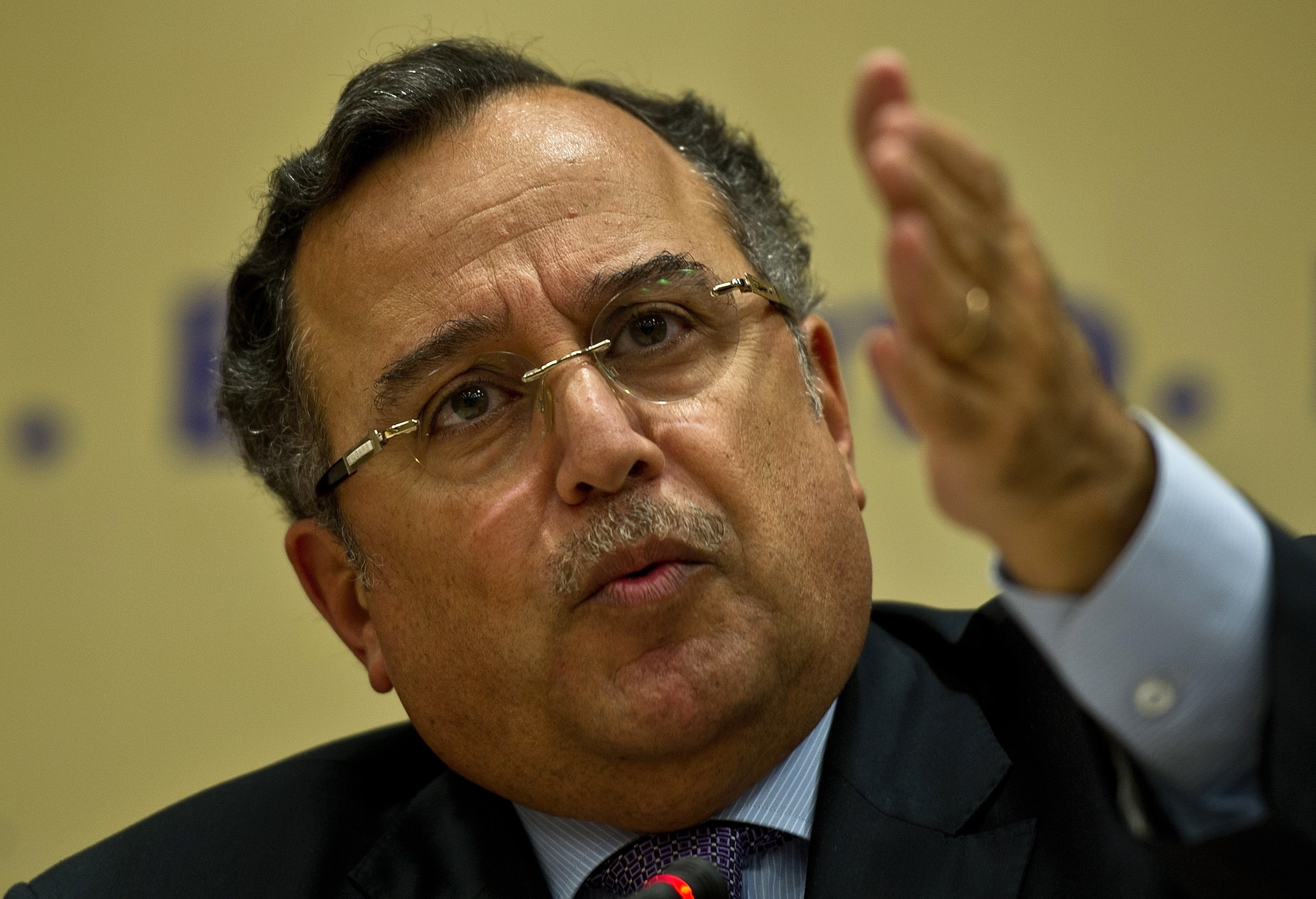US to have 'blood on hands' amid unconditional support for 'Israel'
Former Egyptian Foreign Minister Nabil Fahmy emphasizes how "the amount of material and resources here even exceed what's provided to many NATO countries."
-

Former Egyptian Foreign Minister Nabil Fahmy (AFP)
Former Egyptian Foreign Minister Nabil Fahmy told Sputnik that if the United States does not include serious attempts for de-escalation in its security aid for "Israel", it could end up with blood on its hands.
On Friday, the White House Office of Management and Budget revealed that President Joe Biden is seeking an additional $106 billion in funding from Congress. This funding is intended to offer increased assistance to Ukraine, "Israel", and the Indo-Pacific region and to support operations along the US southern border.
Read next: Egypt to oversee Gaza aid distribution along with UN, Red Crescent
Additionally, there is $14.3 billion allocated for "Israel", comprising $10.6 billion designated for security assistance, including air and missile support, investments in the industrial base, and restocking US weapon supplies, as outlined in the document.
"So it's really surprising. What is the actual intention? What is going to be done that requires this much support? If you're going to provide this blanket support without a clear, de-escalation phase, then frankly, you're going to also have blood on your hands," Fahmy said.
If the White House is attempting to accomplish something, Fahmy continued, it is evident in their request for such a large supplemental aid package -- unless they are just using it for political purposes.
"In all honesty, the money and the kinds of equipment being envisaged here for Israel... the amount of material and resources here even exceed what's provided to many NATO countries," he said.
Furthermore, according to Fahmy, Biden's comparison of the Gaza and Ukrainian crises is based on very unrelated topics. He clarified that since "Israel" is the one occupying the West Bank and enforcing the gas embargo, the US should adopt the opposing stance toward Gaza.
Read more: Egypt's el-Sisi orders sending large humanitarian convoy to Gaza
If the war drags on, the continued aggression against Gaza can affect the price of gas and oil globally, Fahmy told Sputnik.
"Any extended geopolitical disturbance affects strategic goods, be it oil, be it gas," he said. "The cost of energy - be that oil or gas - could be affected, but it's secondary in my mind. My primary objective here is the cost in terms of human life."
Given the continued level of violence, Fahmy told Sputnik he would not rule out the possibility that the aggression on Gaza may turn into a regional confrontation.
"So, as an analyst, I would not expect this to be the intention, but as a practitioner, I would not rule it out given the level of violence that continues to go on," Fahmy said, referring to the risk of a wider regional conflict in the Middle East.
Fahmy emphasized that the "fog of war" is hard to control but clarified that he does not believe that any third parties intend to become engaged at this time due to the challenges involved.
Not only that, Fahmy added that Western nations are damaging their reputation in the Arab world by openly supporting "Israel" in its aggression on Gaza.
"Well, I think the West is doing its best to spoil its reputation in the Arab world by having a double standard that is flagrant and blatant... the West is doing a huge disservice for itself," he said.
As per Fahmy, the West must back a ceasefire that puts an end to all hostilities, allows Palestinians to receive humanitarian aid, and supports a resolution that addresses the captives' issue and, most crucially, "Israel's" occupation.
Read next: Aid for Gaza stuck in Egypt with Rafah crossing closed

 4 Min Read
4 Min Read








